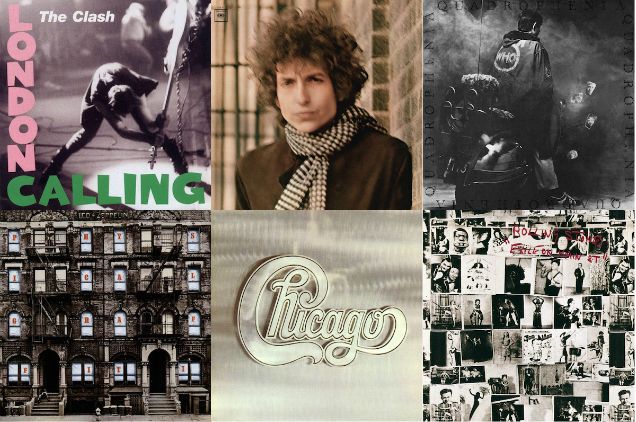
In the pre-digital era, when a vinyl album was limited to roughly 45 minutes, it became not only a badge of honor but an expectation as well that a rock band would release a double album. There were some logical requirements involved: the group needed to have a large enough fan base, they needed to be hitting their creative stride and they had to be commercially successful enough for their label to justify releasing a higher-priced album.
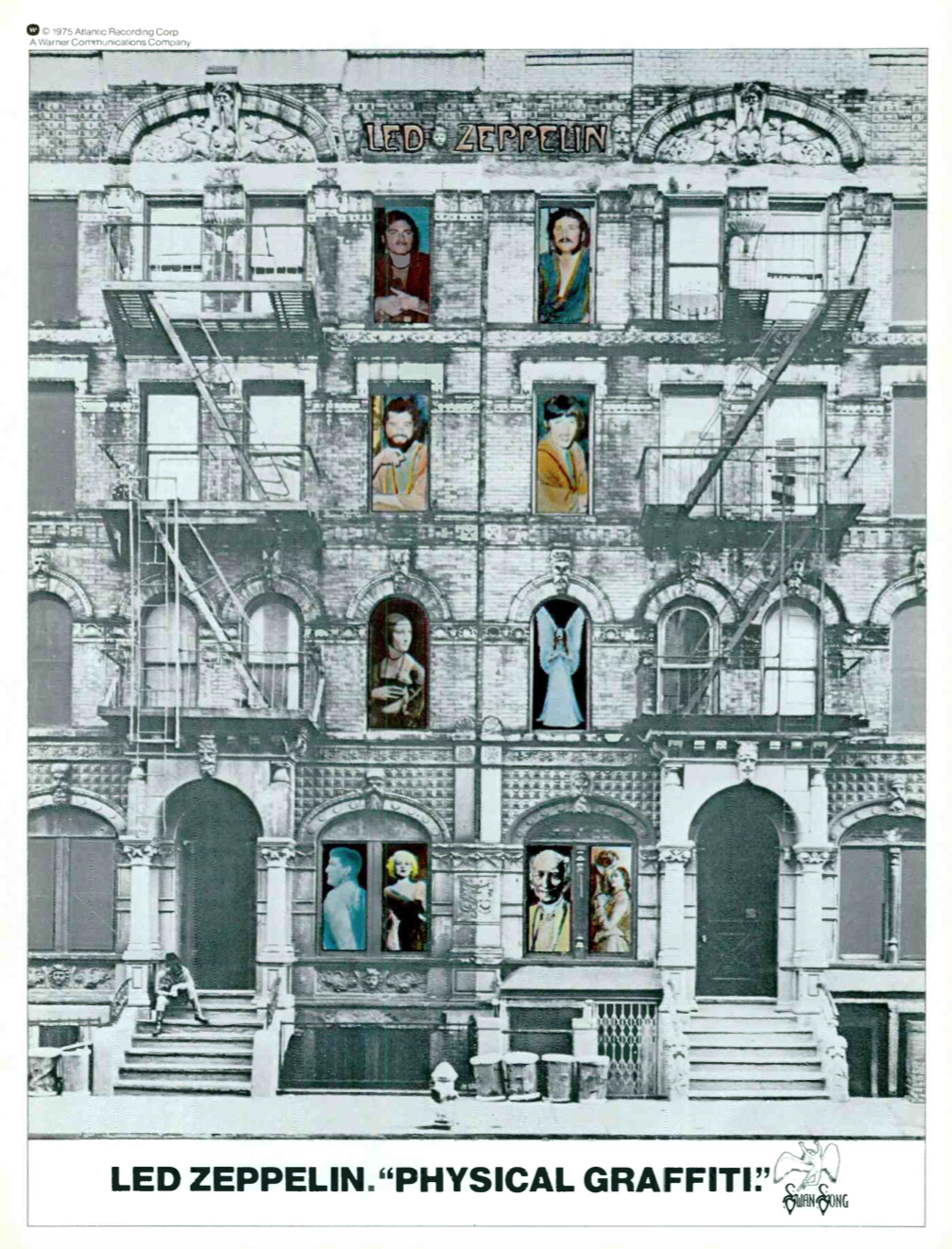
A 1975 music industry trade ad for Physical Graffiti
For those of us of a certain age, the joy of discovery was three-fold. First, you’d hear that it was on its way. The bearer of good news was likely your favorite rock radio station, Rolling Stone or word-of-mouth. Second was going to your local record store or, in some cases, the record department of a department store. (For me, that meant either the Sam Goody free-standing store at what ultimately became the Garden State Plaza in Paramus, NJ, or the Korvette’s department store on Rte 4.) Your heart would be beating fast as you entered the store and grabbed your copy.
Finally, and by far the most important, was the visceral thrill of removing the shrink-wrap, opening the gatefold, placing Record-1, Side-A on your turntable, and then poring over the jacket and sleeves’ contents as you listened to this new treasure for the first time.
What follows is one list of the best studio double albums listed alphabetically by artist. [Since this story was first published, several BCB readers have asked about Tom Petty’s 1994 album, Wildflowers. I’ve limited the list to albums of the classic rock era that were released before 1990.]
The Beatles—The Beatles (Capitol, 1968)
How I envy that lucky 14-year-old who is hearing this album for the first time! While researching this story, I played the “White Album” all the way through for the first time in years—on vinyl, naturally—and was blown away by its scope, all over again, 50 years after its release. A wild fact… As was often the case with Beatles albums, none of the songs were released as singles in the U.K. or U.S. (though the non-LP/amped-up version of “Revolution” was issued three months before the album came out). Yet who among us doesn’t know “While My Guitar Gently Weeps,” “Blackbird” and “Ob-La-Di, Ob-La-Da,” to name just three of its 30 tracks, by heart? Bonus points: That album cover.
Chicago—Chicago II (Columbia, 1970)
The band at its brassy, jazzy best. Side two is about as good as it gets: “Wake Up Sunshine” is followed by “Ballet for a Girl in Buchannon” from the band’s trombonist James Pankow. The 13-minute suite includes two big singles: “Make Me Smile” (a #9 chart hit) and 1970s prom favorite “Colour My World” (#7), both sung by ace guitarist Terry Kath. The cycle winds up with the spectacular twosome of “To Be Free” and “Now More Than Ever,” punctuated by drummer Danny Seraphine. Record-2’s highlight is “25 or 6 to 4” (a #4 hit), which features Kath’s brilliant guitar solo and great lead vocal by bassist Peter Cetera. Bonus points: The album was originally titled Chicago but was renamed when the band adopted the Super Bowl-like Roman numerals with the follow-up.
P.S. Lots of people think the band’s first release, 1969’s Chicago Transit Authority (also a two-LP set), is even better.
The Clash—London Calling (Epic, 1979)
The creative juices were flowing! After just two albums, the English punk rockers were overflowing with material. Between this and 1980’s triple-album Sandinista!, the Clash released the equivalent of five albums in 12 months. Personal favorites are the collection’s title cut, the ska-style “Wrong ‘Em Boyo” with the joyful brass from the Irish Horns, “Clampdown” and “Train in Vain,” which became their U.S. breakthrough, though it was famously originally hidden from the album’s song listings. Bonus points: the cover depicting Paul Simonon seconds before obliterating his bass is an homage to Elvis Presley’s iconic 1956 album cover.
Derek and the Dominos—Layla and other assorted love songs (Atco, 1970)
Its celebrated title cut aside, put this album on and you’ll re-discover a batch of blues and rock gems that you’ve perhaps forgotten about. Each side has one: “Keep on Growing,” “Anyday,” “Why Does Love Got to Be So Sad?” and “It’s Too Late,” respectively. On “Bell Bottom Blues,” when Eric Clapton sings “Do you want to see me crawl across the floor to you, Do you want to hear me beg you to take me back,” your heart aches. Bonus points: Duane Allman guests on 11 of the LP’s 14 tracks.
Bob Dylan—Blonde on Blonde (Columbia, 1966)
Yeah, right, like I’m really gonna add anything smart about one of the greatest albums of all time. Let me just note that if you’re looking to own one of the Bard’s (relatively) early studio albums, this should be your choice. Its 14 songs are loaded with some of his best known—“Rainy Day Women #12 & 35,” “I Want You,” “Stuck Inside of Mobile With the Memphis Blues Again” and “Just Like a Woman”—plus lesser known gems “Absolutely Sweet Marie” and “Most Likely You Go Your Way and I’ll Go Mine.” Bonus points: There’s cool and then there’s Bob Dylan cool (i.e., using an out-of-focus picture for the album cover).
Electric Light Orchestra— Out of the Blue (Jet, 1977)
Jeff Lynne and Co. introduced audiences to several more great singles (“Turn to Stone,” “Mr. Blue Sky” and “Sweet Talkin’ Woman”). But there are many often overlooked gems among the album’s four sides, “Night in the City,” “Jungle” and a personal favorite, “Wild West Hero.” Bonus points: U.S. Top 40 radio programmers totally missed out on taking “Mr. Blue Sky” further up the national chart. The song perhaps most synonymous with ELO peaked at just #35.
Related: Our Album Rewind of Out of the Blue
Genesis—The Lamb Lies Down on Broadway (Atco, 1974)
The band’s final album with Peter Gabriel was an ambitious one and yielded no hits in either the U.K. or America. But tracks like “In the Cage,” “The Carpet Crawlers,” and the title track continue to resonate decades later, and the musicianship from Gabriel, Steve Hackett, Tony Banks, Mike Rutherford, and Phil Collins, is first rate. Bonus points: The band supported the album with a massive tour in which they played the album in its entirety. It’s estimated they incurred debts of £220,000 by the tour’s end.
Related: Our Album Rewind of The Lamb Lies Down on Broadway
The Jimi Hendrix Experience—Electric Ladyland (Reprise, 1968)
The third (and final) studio album from Hendrix, Noel Redding and Mitch Mitchell, all within 14 months, further demonstrated their growth as a rock threesome and yielded a few songs you might be familiar with: “All Along the Watchtower,” “Voodoo Child” and “Crosstown Traffic” among them. The list of guest stars is a testament to the legend’s greatness, with Traffic’s Steve Winwood, Dave Mason and Chris Wood all joining in, as well as Brian Jones, Al Kooper, Jack Casady and Buddy Miles. Hendrix named his Greenwich Village recording studio after the album. It opened in August 1970 but he only got to spend four weeks there before passing a month later. Bonus points: Some of the album jacket’s photos were taken by Linda Eastman.
Elton John—Goodbye Yellow Brick Road (MCA, 1973)
The gifted piano player was at the top of his game with album after album yielding hit after hit when this arrived. It kicks off with the stunning instrumental “Funeral For a Friend” which deftly segues into “Love Lies Bleeding.” While there’s some filler (“Grey Seal,” anyone?), others sound as fresh today as they did then. The album was so successful that it pushed John to super-stardom and I’ll confess that it was the beginning of the end for me. Remember when EJ was still just being discovered with the album troika of Tumbleweed–Madman–Honky Chateau? Man, those were great days. Bonus points: John’s revised version of “Candle in the Wind” in tribute to Princess Diana in 1997 became the second best-selling single of all time.
Led Zeppelin—Physical Graffiti (Swan Song, 1975)
Though it was the band’s sixth studio effort, Robert Plant and John Bonham were still just 26 when it was released! (Elder statesman Jimmy Page was 31.) The band shifts into high gear on side two with the back-to-back-to-back “Houses of the Holy,” “Trampled Under Foot” and the extraordinary “Kashmir.” Enough can’t be said about the latter; of those who’ve said they’d be okay if they never heard “Stairway” again, I’ve yet to hear the same about this tour-de-force and its marvelous orchestration. In stark contrast to side two’s heavy metal are side three’s lovely instrumental “Bron-Yr-Aur” and “Ten Years Gone.” Bonus points: The album cover photo was shot at #s 96 and 98 St. Marks Place in NYC’s East Village.
Pink Floyd—The Wall (Columbia, 1979)
Chart geek that I am, I remain fascinated by this album’s singles. “Another Brick in the Wall (Part II)” is the group’s outlier. A #1 pop smasheroo for a band with only one other career single that reached the Top 50 of the U.S. Hot 100. And what a song it is! And as surprising a #1 chart hit as any, I suppose. For Top 40 radio programmers couldn’t care less about “concept album,” “rock opera” or whatever. Their ears–aided by call-out research–are simply playing what their audience (supposedly) wants to hear. Then the label followed it up with “Run Like Hell,” which performed only modestly well; though at #53, it remains Pink Floyd’s third-highest-charting single. By now, The Wall‘s elaborate arena tour had begun, the year’s most talked-about–they built a friggin’ wall at every performance, for chrissakes! So, Columbia issued the stunning “Comfortably Numb” as the album’s third single. Years later, Rolling Stone ranked it #314 of the 500 Greatest Songs of All Time, but not on Top 40. The single never even charted! Bonus points: The original tour consisted of only 31 dates in just 4 cities.
Prince—1999 (Warner Bros., 1982)
This album was the Purple One’s fourth consecutive October release and his fifth overall. It’s also the one that really established him before 1984’s Purple Rain took him to an entirely different playing field. Record-1’s five tracks are pretty epic: the party anthem “1999,” “Little Red Corvette” (his first Top 10 pop hit), “Delirious,” the filthy “Let’s Pretend We’re Married” and the funk jam “D.M.S.R.” That’s an all-star team right there. And he was only getting started. (Prince’s Sign O’ the Times was a tough omission from this list.) Bonus points: Don’t play “Let’s Pretend We’re Married” in front of the kids. Just sayin’…
Rolling Stones—Exile on Main St (Rolling Stones, 1972)
What an entrance! Put the needle on side one of that first platter and… bam! “Rocks Off” explodes out of the speakers with that rollicking piano from keyboard player Nicky Hopkins, that brass section courtesy of Bobby Keys and Jim Price, and the great production from Jimmy Miller. The album’s 18 songs explore blues, country and other genres and, of course, what the World’s Greatest Rock ‘n’ Roll Band are known for. It’s fairly safe to say that no one bought it for its singles, though “Tumbling Dice” did get to #5 and “Happy” (with Keith Richards on lead vocal) reached #22. Like a fine bottle of red, Exile has aged beautifully. Bonus points: Albums released on the Stones’ own label always used the letters “COC” before the catalog number. Boys will be boys…
Bruce Springsteen—The River (Columbia, 1980)
While researching this, I was surprised to discover that despite its acclaim, 1975’s Born to Run wasn’t The Boss’ first #1 album. Nope, that’s reserved for this mix of rockers and introspective songs whose 20 tracks devote plenty of time to driving the open road. The album delivered Springsteen his first Top 5 single, “Hungry Heart”; some of the great non-singles are “You Can Look (But You Better Not Touch),” “Independence Day” and “Cadillac Ranch.” Bonus points: Springsteen originally wrote “Hungry Heart” for the Ramones but ended up keeping it for himself. It features background vocals by Mark Volman and Howard Kaylan of the Turtles.
The Who—Quadrophenia (MCA, 1973)
Pete Townshend’s second rock opera in five years, after he shelved his ambitious Lifehouse project. Could he top 1971’s Who’s Next? Yes, indeed. I was 16 when this was released and by now I’ve probably played it 1,000 times. At one point or another, a different track became my favorite song on the album. As a teenager, I couldn’t play “The Punk Meets the Godfather” loud enough. As a college student, I leaned toward the more introspective “Sea and Sand.” In young adulthood, it was “Is It In My Head” with Roger Daltrey’s outstanding vocal. For at least 10 years now, the same one has had my name on it and ironically it’s the album’s one true instrumental: “The Rock.” Bonus points: At the risk of sounding morbid, my family knows that if I’m in a coma, they need to blast Quadrophenia in my hospital room. If they don’t see signs of life, I’ve had enough.
Stevie Wonder—Songs in the Key of Life (Tamla, 1976)
We’ve noted in a list of Grammy hits and misses, about Wonder’s great mid-1970s run that included Innervisions and Fulfillingness’ First Finale. And to think that when Songs was released it was the then-26-year-old’s 26th album. And it delivers, with another diverse collection of R&B-jazz-pop-funk classics, including twin #1 pop hits: “Sir Duke” and “I Wish.” But the man was so prolific that it’s been easy to overlook some of the album’s other gems like “Pastime Paradise” and album closers “As” and “Another Star.” Bonus points: Songs came with a bonus 4-song EP.
As a postscript… Plenty of readers have taken me to task for several omissions, most notably Yes’ Tales From Topographic Oceans. While I’ve enjoyed it immensely from the moment it came out, regrettably, I think it falls just outside my self-imposed cut of 16.


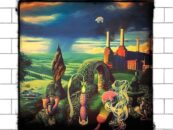
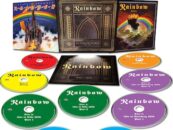
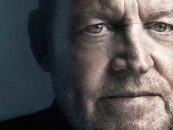
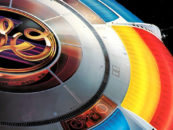

72 Comments so far
Jump into a conversationGreat list, though I’m pretty sure that, in addition to The River, Physical Graffiti and London Calling weren’t gatefolds, either. (At least my copies weren’t)
Thanks for pointing that out, Dave. Brain cramp on my part as I wrote and researched the piece over several days. I’ve amended by Springsteen “Bonus Points.” 😉
London Calling was several discs squeezed into a sleeve really designed for one disc. I remember attending parties around this time, playing this record, which never ever made it back into the squeezy packaging.
This is a great topic – and a very solid list.
Thank you for compiling this. Many, many memories are contained for me on these collections. I have recently been revisiting ‘Physical Graffiti’ and have fallen in love with it all over again, thanks to Page’s superb job of re-mastering. I wonder, though, ould it be sacrilege to add ‘Bitches Brew’ to this list?
Bitches Brew is a good choice, @ Innocent III.
Also, no Eat a Peach? Or Live/Dead? I would take either of those over The River.
The River certainly has its moments, but I feel it also has its share of filler and would’ve been better off as a single album (probably true of Goodbye Yellow Brick Road too).
Tommy is a suprising omission too.
This list was only studio albums, which is why the Dead and Allmans were not included.
Ah, but Eat a Peach is only half-live. The other half is studio.
i would add-incredible string band’s “wee tam/big huge
I consider ICB’s “Wee Tam” and “Big Huge” to be two separate albums distributed in one package.
Anyhow, I would have included Soft Machine’s “Third” as one of the greatest double studio albums.
Regarding The White Album, I am with the “it’s a great single album” group.
As far as Elton goes, Captain Fantastic is, well… fantastic! That was the end of the great run, in my opinion.
Finally, The Garden State Plaza Mall is the most confusing shopping center. I miss all the great record stores we had growing up and Korvettes!
OMG. A fellow north Jerseyan!
I bought a LOT of records at Korvette’s – giving my Mom a list based on an ad in the paper.
You included Chicago’s second album, which is indeed amazing, but Chicago ruins your formula for when a band is ready for a double album. Apparently Chicago had enough record sales before their first album…..:)
Chicago Transit Authority
All Things Must Pass
Totally agree with Chicago Transit Authority. Introduction grabs me by the ears and doesn’t let go. An amazing first album !
Amazing. Terry Kath was incredible.
All Things Must Pass was a great double album that had a third LP added that would have been better off thrown away..
Tommy by The Who? Chicago Transit Authority? Rattle & Hum by U2?
Let’s add Todd Rundgren “Something/Anything” (1972)
That’s the one I would add. 1 vinyl of serious songs and 1 where he was just having fun.
Bee Gees “Odessa”
Freak Out
Uncle Meat
Trout Mask Replica
What about “Hooker ‘n Heat” by John Lee Hooker with Canned Heat and Bob Dylan’s “Basement Tapes”? Where are they in your list ?
tommy is the most over rated album anywhere..I dont know anyone thatever listens to it .The River is yawnstipating
Hello.
Now you do.
Agree on River but Tommy is still a great listen
Johnny Winter: Second Winter was released as 3-sided Double Album, side 4 blank. I don’t recall any other release in that configuration. His definitive cover version of Highway 61 Revisited is keynote track. Great list Greg!
If I recall correctly, Joe Jackson’s “Big World” was also configured that way……
Joe Jackson’s Big World is 3 sided.
Why isn’t TALES BY YES ON THE LIST
I have always argued that the Beatles double album was a great single album with an additional discount of crap. So many songs are unlistenable to me, but the great songs are some of the band’s best stuff
I have been a Beatles fan from the early years. The white album should have been a single disc.
My alternative list: EASY DOES IT (Al Kooper); BLONDE ON BLONDE (Bob Dylan); LIVIN’ THE BLUES (Canned Heat); TROUT MASK REPLICA (Captain Beefheart And His Magic Band); CHICAGO TRANSIT AUTHORITY (Chicago); CHICAGO II (Chicago); SECOND WINTER (Johnny Winter); OUT HERE (Love); BITCHES BREW (Miles Davis); REDBONE (Redbone); ELECTRIC LADYLAND (The Jimi Hendrix Experience); FREAK OUT (The Mothers Of Invention); UNCLE MEAT (The Mothers Of Invention); FREEDOM SUITE (The Rascals).
I love your list…variety of styles matches my own interests
ELO out of the blue was a great choice
Hey…..Grey Seal is a great song. Filler…..what a twit you are.
“Grey Seal” may be weak in comparison to the rest of the “Yellow Brick Road” set….but it is definitely better than some current artists’ hits……and as much as I generally love the White Album, there are several bits of throwaway garbage on it…..at least “Grey Seal” is really a song.
Absolutely. Gray Seal is one of the best tracks on an album that does otherwise have a bit of filler.
Thank you! I actually bought all Elton’s albums trying to find “Grey Seal.” Heard it on the radio one morning while trying to wake up and didn’t catch the title. One of his best.
All great choices.
As to London Calling, I would often take the Elvis (Presley) album and move it to The Clash rack at my local record store. By the time k.d. lang did the third homage to that album cover design, record stores were hard to come by. All Things Must Pass indeed (referring to the documentary about Tower Records there).
I agree that ‘the River’ is ‘yawnstipating’ as one commenter noted and should have been a single album release as noted by another.
Wait – you’re saying that MORE of The Clash is an IMPROVEMENT?
Wow I grew up near Paramus, NJ also, so Sam Goody and Korvettes definitely takes me back.
Lol I’m from Paramus and was in Korvettes at least once a week buying albums
Manassas first album!!
Two points: First, while I guess technically Electric Ladyland was Hendrix’s last studio record in that he was around when it came out, Cry of Love was actually his last full studio recording, as he finished it, but passed before final mix, which Eddie Kramer had to do in his stead. Cry of Love is a fitting last recording as it shows the new directions Hendrix was headed toward, while maintaining his genius in the studio.
Second, what no Cream’s Wheels of Fire? Is it disqualified because it’s partially live?
Thanks! Great fun.
Technically correct on Hendrix’s “Cry Of Love being his last official studio release. And Yes…Wheel of Fire was not a full “studio” lp. Interesting that only 3 songs took up 2 full sides…
All Things Must Pass is triple album!
No. 17 : underrated double album English Settlement by XTC. I still don’t understand why in some countries this double great LP with 15 solid songs has been proposed in a single LP with only 10 songs in a different running order… to finally release it as it was planned years later. The Beatles syndrome?
In the U.S., their record company didn’t feel the extra expense would return their investment. Pity. I absolutely agree that the original is among the finest doubles ever.
If you’re going to mention XTC, their other double album “Oranges & Lemons” was their masterpiece.
The Clash actually released the equivalent of six albums in 15 months. After the sessions for Sandinista! were over, they stayed in the studio and were the backing band for Spirit of St. Louis, a studio album by Ellen Foley (Mick Jones’ girlfriend at the time). Half the tracks are also credited to Strummer/Jones.
And what about Tusk by Fleetwood Mac? Underrated masterpiece.
Greg – thanks for the well-thought piece, and I appreciate that you described it as “ONE list of…”. Hunble, cagey and grammatically succinct. My teen record source was the Hampton VA Korvettes. They were closed on Sundays, so they set up their sale stuff before they closed on Sat, so we’d get two weeks’ worth of sale prices…
Thanks, Slappy. Those sale prices were truly amazing.
Norm, thanks for the info on “English Settlement, ” i did not know that. However, you did remind me of “Oranges And Lemons,” which was an XTC favorite, and a much underappreciated double LP.
Here’s one that no one talks about. The jam session album Music From Free Creek featuring Eric Clapton as “King Cool”, Jeff Beck as “A.N. Other, Linda Ronstadt, Dr. John, Keith Emerson, and Todd Rundgren among others.
Jeff Wayne – War of the Worlds – my fave two-record set. The booklet had great illustrations too.
Some of the comments would seem to suggest that a list of half live/half studio double albums could be interesting. I’ll add Untitled to those already mentioned. And Strung Up, even though that was half live/half compilation, it’s still a lot of fun.
Absolutely have to agree on the Manassas album – Personally, in my Top Ten of albums to have on a deserted island (as long as my CD Player batteries hold out…….)
1999’s first two sides beyond amazing, but sides three and four, while still excellent, pale next to the songs which preceded them. The same cannot be said of the flawless Sign ☮️ the Times, Prince’s double album magnum opus.
I would add Stephen Stills/Manassas album to that list
Todd Rundgren
Something/Anything
I think you unknowingly omitted “Secomd Winter” by Johnny Winter which was.a phenomenal 3 sided album if that counts. All the songs are well played and written and added to Johnny’s future and success.
What, the double Manassas (Stephen Stills) album is not mentioned? Injustice!
Not a big fan but agree Tommy should be on the list. In addition, how could you miss JC Superstar?
Freudiana 1990 by Eric Woolfson/Alan Parsons Project…
I am the biggest Zep fan but Kashmir puts me to sleep.
Good job Greg, Good to see you included ELO…Have to say Physical Graffiti tops the list…Remember it was E.J. Korvettes, and south a little in Jersey City we would hit up a record shop in Journal square (forgot the name), also Two Guys from harrison on rte 440 in JC, little smaller selection than Korvettes….thx
Not that it matters – yet I bring it up for some reason – but “Physical Graffiti” was a double album only because about half of it was older material that hadn’t previously been released, including “Houses of the Holy”, which for some bizarre reason (they preferred “Dancing Days” over it was what I’d read) wasn’t included on the album of the same name. And…YEAH, “Something/Anything?” is very conspicuously missing!
I have three: Layla and other assorted love songs by Derek and the Dominos, The White Album, and Goodbye Yellow Brick Road
Chicago transit Authority was a FAR BETTER record than Chicago II, which was/is a great record as well.